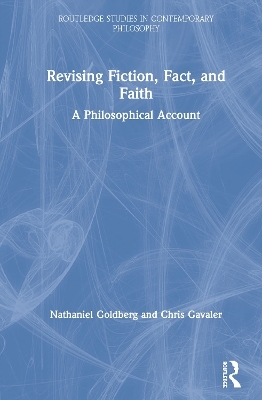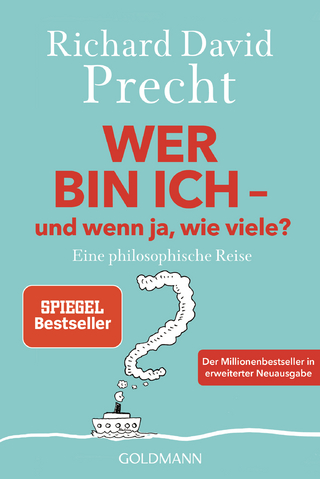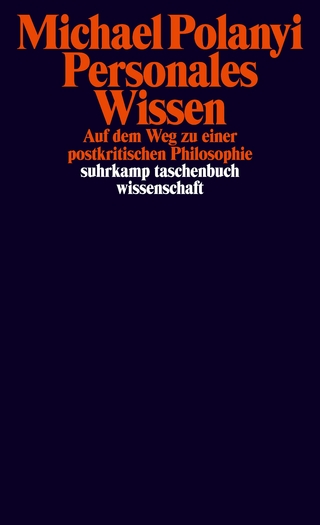
Revising Fiction, Fact, and Faith
A Philosophical Account
Seiten
2020
Routledge (Verlag)
978-0-367-50618-6 (ISBN)
Routledge (Verlag)
978-0-367-50618-6 (ISBN)
This book addresses how our revisionary practices account for relations between texts and how they are read. It offers a philosophy of revision concerning works of fiction, fact, and faith, revealing unexpected insights about philosophy of language, the metaphysics of fact and fiction, and the history and philosophy of science and religion.
This book addresses how our revisionary practices account for relations between texts and how they are read. It offers an overarching philosophy of revision concerning works of fiction, fact, and faith, revealing unexpected insights about the philosophy of language, the metaphysics of fact and fiction, and the history and philosophy of science and religion.
Using the novels of J.R.R. Tolkien as exemplars, the authors introduce a fundamental distinction between the purely physical and the linguistic aspects of texts. They then demonstrate how two competing theories of reference—descriptivism and referentialism—are instead constitutive of a single semantic account needed to explain all kinds of revision. The authors also propose their own metaphysical foundations of fiction and fact. The next part of the book brings the authors’ philosophy of revision into dialogue with Thomas Kuhn’s famous analysis of factual, and specifically scientific, change. It also discusses a complex episode in the history of paleontology, demonstrating how scientific and popular texts can diverge over time. Finally, the authors expand their philosophy of revision to religious texts, arguing that, rather than being distinct, such texts are always read as other kinds, that faith tends to be more important as evidence for religious texts than for others, and that the latter explains why religious communities tend to have remarkable historical longevity.
Revising Fiction, Fact, and Faith offers a unique and comprehensive account of the philosophy of revision. It will be of interest to a wide range of scholars and advanced students working in philosophy of language, metaphysics, philosophy of literature, literary theory and criticism, and history and philosophy of science and religion.
This book addresses how our revisionary practices account for relations between texts and how they are read. It offers an overarching philosophy of revision concerning works of fiction, fact, and faith, revealing unexpected insights about the philosophy of language, the metaphysics of fact and fiction, and the history and philosophy of science and religion.
Using the novels of J.R.R. Tolkien as exemplars, the authors introduce a fundamental distinction between the purely physical and the linguistic aspects of texts. They then demonstrate how two competing theories of reference—descriptivism and referentialism—are instead constitutive of a single semantic account needed to explain all kinds of revision. The authors also propose their own metaphysical foundations of fiction and fact. The next part of the book brings the authors’ philosophy of revision into dialogue with Thomas Kuhn’s famous analysis of factual, and specifically scientific, change. It also discusses a complex episode in the history of paleontology, demonstrating how scientific and popular texts can diverge over time. Finally, the authors expand their philosophy of revision to religious texts, arguing that, rather than being distinct, such texts are always read as other kinds, that faith tends to be more important as evidence for religious texts than for others, and that the latter explains why religious communities tend to have remarkable historical longevity.
Revising Fiction, Fact, and Faith offers a unique and comprehensive account of the philosophy of revision. It will be of interest to a wide range of scholars and advanced students working in philosophy of language, metaphysics, philosophy of literature, literary theory and criticism, and history and philosophy of science and religion.
Nathaniel Goldberg is Professor of Philosophy at W&L University, USA. He is author of Kantian Conceptual Geography (2015) and Superhero Thought Experiments (with Chris Gavaler, 2019). Chris Gavaler is Associate Professor of English at W&L University, USA. He is author of On the Origin of Superheroes (2015), Superhero Comics (2017), Superhero Thought Experiments (with Nathaniel Goldberg, 2019), Creating Comics: A Writer’s and Illustrator’s Guide (with Leigh Ann Beavers, 2020), and The Comics Form (Routledge, forthcoming).
Introduction
1. There and Back Again
2. Semantic Dualism
3. Metaphysical Foundations of Fiction and Fact
4. Reporting, Applying, Bracketing
5. Considering Kuhn
6. Being Brontosaurus
7. Analyzing Abraham
Conclusion
| Erscheinungsdatum | 03.07.2020 |
|---|---|
| Reihe/Serie | Routledge Studies in Contemporary Philosophy |
| Zusatzinfo | 18 Line drawings, black and white |
| Verlagsort | London |
| Sprache | englisch |
| Maße | 152 x 229 mm |
| Gewicht | 453 g |
| Themenwelt | Geisteswissenschaften ► Geschichte |
| Geisteswissenschaften ► Philosophie ► Metaphysik / Ontologie | |
| Geisteswissenschaften ► Philosophie ► Sprachphilosophie | |
| Geisteswissenschaften ► Sprach- / Literaturwissenschaft ► Anglistik / Amerikanistik | |
| Geisteswissenschaften ► Sprach- / Literaturwissenschaft ► Literaturwissenschaft | |
| ISBN-10 | 0-367-50618-1 / 0367506181 |
| ISBN-13 | 978-0-367-50618-6 / 9780367506186 |
| Zustand | Neuware |
| Informationen gemäß Produktsicherheitsverordnung (GPSR) | |
| Haben Sie eine Frage zum Produkt? |
Mehr entdecken
aus dem Bereich
aus dem Bereich
eine philosophische Reise
Buch | Softcover (2024)
Goldmann (Verlag)
CHF 19,55
Auf dem Weg zu einer postkritischen Philosophie
Buch | Softcover (2023)
Suhrkamp (Verlag)
CHF 53,20


